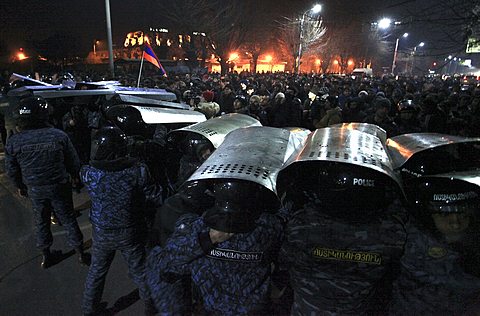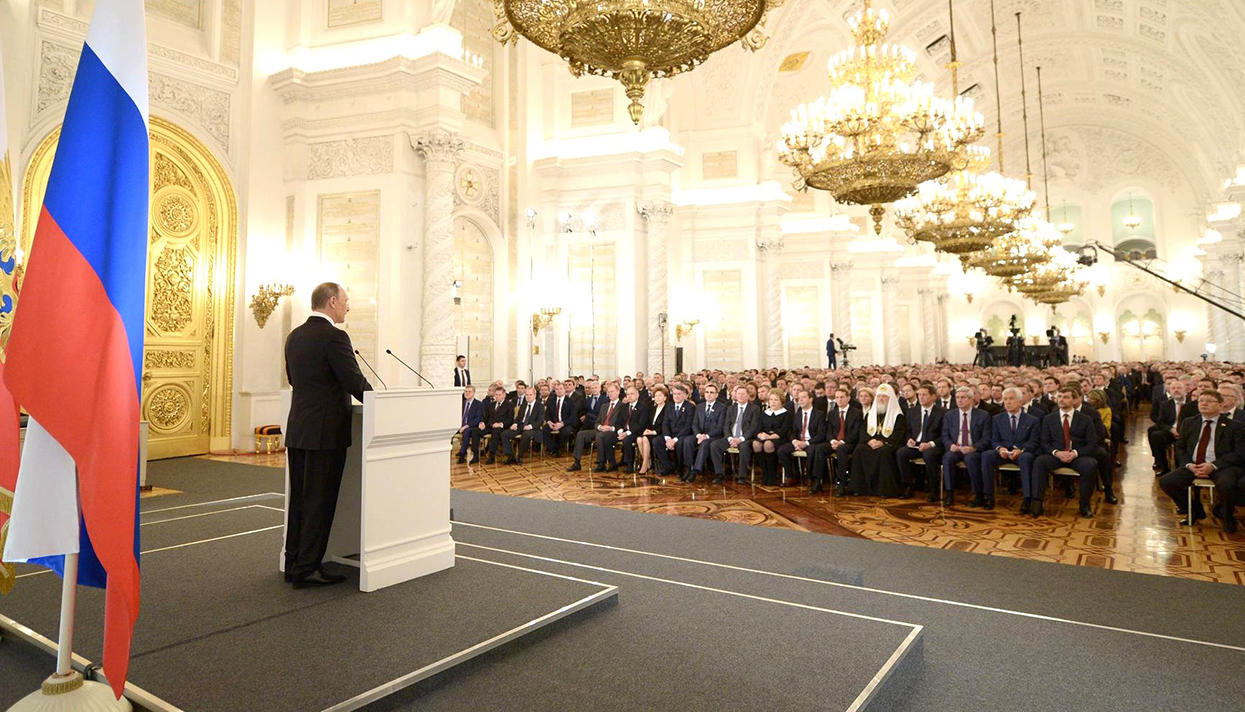The anger Armenians are displaying at Moscow’s protection of a soldier who killed a family of Armenians and Yerevan’s knuckling under to Moscow’s demand that the soldier be tried by Russian courts is producing in that south Caucasus country the preconditions for an Armenian Maidan.
That is the judgment of three analysts who point out that many have forgotten that the Ukrainian Maidan was sparked precisely by an analogous scenario in which Moscow made demands and the government in Kyiv conceded and that Russia’s overbearing policies are producing similar consequences not only in Armenia but across Eurasia.
Vitaly Portnikov points out that what happened in Gyumri was horrific but hardly likely to spark mass protests. That might be true elsewhere, “but only not on the post-Soviet space,” given how Moscow behaved, how Yerevan responded, and how Armenians felt as a result.
Many Russians “cannot yet understand that the Ukrainian Maidan occurred not only because of the unexpected rejection of Viktor Yanukovych to pursue European integration and the beating of peaceful demonstrators… but from the obvious suspicion that the Ukrainian president did so by Vladimir Putin’s order.”
![gyumri_t[1]](http://euromaidanpress.com/wp-content/uploads/2015/01/gyumri_t1.jpg)
In fact, Portnikov says, this was more than a suspicion; it was for them a self-evident fact.
As a result, Ukrainians came to the Maidan because “their president could not take even the most ordinary decision without telephone consultations with Putin,” a reflection of the fact that the Kyiv leader was surrounded by KGB officers and confirmed for all when Yanukovych fled into Russia.
“Armenia under Sargsyan is the same kind of state,” Portnikov says. It can only maintain parity with Azerbaijan if Russia helps, and “no one in Armenia knows” what will happen if Russia collapses or decides to “switch allies in the Caucasus” as well it might. Indeed, “no one in the Armenian government is even reflecting about the need to find an answer to this question.”
But now, as “a moment of truth” arises, Armenian citizens “literally feel that no one is defending him,” that his country is “not a state” and this “his president is the representative of a foreign power and not a national leader.” As a result, he “goes into the street” not so much to protest but “out of an instinct for self-preservation.”
That will be the case whenever the issues is about dignity and insults to dignity, the commentator concludes, “and it is not very important where – in Kyiv or in Yerevan and Gyumri.”
Lili Dobrovolskaya echoes
that when she writes that Armenians are furious because of the “Russian neo-colonialism” now on display in Gyumri when the Russians think they are making a concession by saying they will try the soldier accused of murder in Armenia but not allow him to be tried by Armenian courts, an attitude that is “colonial” not that of allies.
Yerevan officials, including the defense minister, have seemed more interested in defending relations with Russia than in defending Armenia and Armenians, and thousands of Armenians have thus taken to the streets to protest and to demand that their government stand up to Moscow, something it has consistently refused to do.
And Aleksandr Ryklin in “Yezhedevny zhurnal” argues that while it is difficult to predict how things will develop in Armenia, “it is already obvious” that Armenians have no trust in the Russian judicial system or in Russia as a whole” and that they aren’t going to any time soon. As one demonstrator’s sign said, “Armenia isn’t the Donbas,” showing just how Armenians view the situation.





